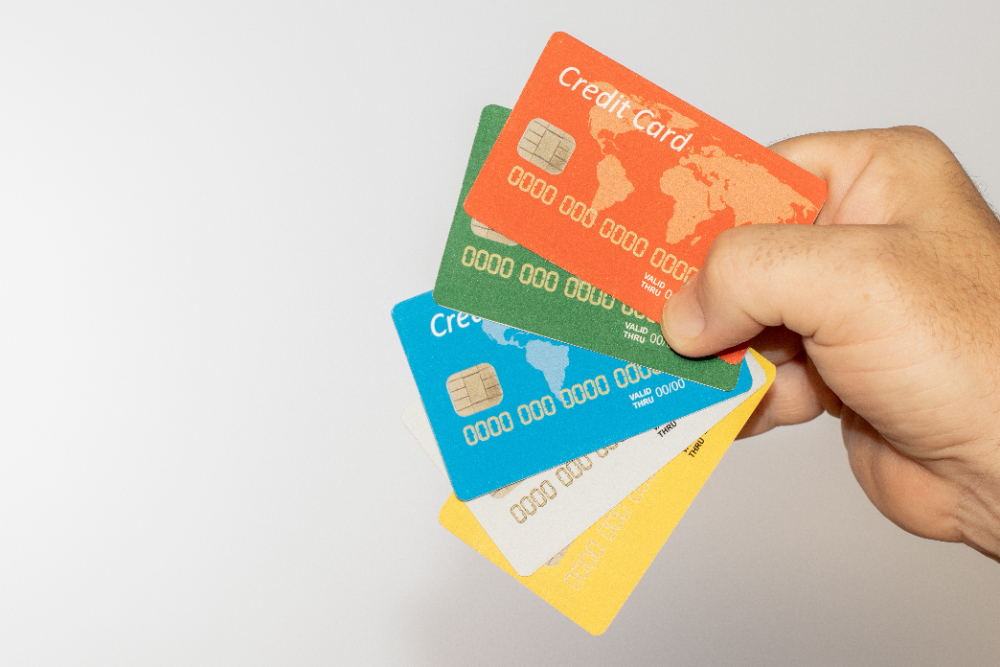Clever Tactics for Choosing the Ideal Credit Card
The credit card landscape in the U.S. is extensive, and grasping the nuances of each card type is essential for making the right decision this year!
Selecting the ideal credit card can be daunting, particularly with the vast array of choices in the U.S. credit market.
With options ranging from cashback cards to those that provide travel perks or lower interest rates, determining the best match for your finances involves careful thought and research.

This guide offers insightful strategies to assist you in making an informed decision.
What Do You Need?
Consider some important questions, like:
Types of Credit Cards
Here are the primary types of credit cards in the U.S.:
- Rewards Cards: Earn points, miles, or cashback for your purchases.
Recommended for: Frequent users who can maximize rewards. - Low APR Cards: Feature low-interest rates particularly for balance transfers.
Recommended for: Those needing to carry a balance and manage debt. - Credit Building Cards: Suitable for those with little or no credit history, with or without a deposit requirement.
Recommended for: Beginners or those rebuilding credit, including students. - Zero Fee Cards: No annual fee, but may offer fewer perks.
Recommended for: Occasional users seeking low-cost spending options.
Assess Fees and Terms
Every credit card has associated fees and terms that can affect your finances. While reviewing your options, focus on:
- Interest Rates (APR): Opt for cards with lower rates, especially if you can’t pay your balance in full monthly.
- Annual Fees: Some cards charge these fees, but they might be worth it if the benefits exceed the costs.
- Cash Advance Fees: Steer clear of cards with high cash advance charges.
- Foreign Transaction Fees: If you travel often, select cards that waive these fees.
Compare Extra Benefits
If these perks resonate with your lifestyle, they can significantly enhance the value of the card you choose.
Evaluate the Issuer’s Standing
The card issuer’s reputation matters too. Brands like American Express, Chase, and Capital One are well-regarded in the U.S.
Look into the customer service quality and features they provide, including easy-to-use mobile apps and tools for managing your account.
Get to Know Your Credit Score
Your credit score plays a crucial role in whether you’re approved for a card and the terms you receive. It’s wise to check it before applying and select a card that fits your score.
- Excellent Credit (720+): Best rates and rewards available.
- Good Credit (690-719): Solid options, fewer premium perks.
- Fair or Poor Credit (629 or less): Seek secured cards or those with easier requirements.
Limit Your Card Applications
Every application triggers a check on your credit report, which can momentarily impact your score.
Focus on applying for cards you’re likely to get approved for to protect your credit history from negative effects.
Utilize Online Comparison Resources
Websites dedicated to credit card comparisons can help you find the perfect card quickly.
Input your preferences and spending patterns for tailored suggestions.
Smart Tips for Card Usage
Try to avoid carrying any balances month to month. Use apps to track your spending and keep it within your budget.
Join loyalty programs to maximize your rewards. If your credit score improves, reach out to your issuer to negotiate better terms.
Finding the right credit card in the U.S. takes careful research, self-awareness, and attention to detail.
By employing these clever tactics, you’ll be well-equipped to make a sound choice, reaping the rewards of credit while safeguarding your financial well-being.





